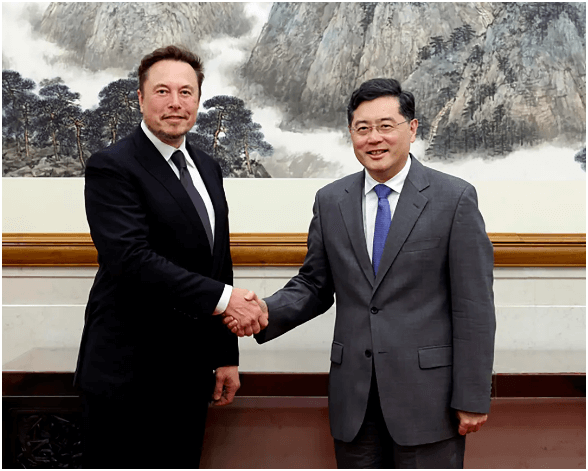US Business Figure Condemns Elon Musk’s China Preference as Detrimental to India’s Interests
In a surprising turn of events, a prominent US business figure has criticized Elon Musk’s apparent preference for China over India, citing potential negative implications for India’s economic interests. The critique comes amidst growing speculation about Musk’s strategic decisions regarding Tesla’s expansion plans and investment priorities in the region.
The Context of Economic Rivalry:
The rivalry between India and China for investment and market share in key industries has intensified in recent years, fueled by geopolitical tensions, trade disputes, and strategic considerations. Both countries are vying for foreign direct investment (FDI) and seeking to attract multinational corporations to establish a presence in their respective markets, leveraging incentives, infrastructure development, and regulatory reforms to lure investors.
Elon Musk’s Strategic Preferences:
Elon Musk, the enigmatic CEO of Tesla and SpaceX, has been a vocal advocate for expanding Tesla’s footprint in China, where the company has made significant investments in manufacturing facilities, research and development (R&D) centers, and sales and distribution networks. China, with its large and rapidly growing market for electric vehicles (EVs) and government support for renewable energy initiatives, represents a lucrative opportunity for Tesla to capitalize on.
However, Musk’s apparent preference for China over India has raised eyebrows among some observers, who question the implications of prioritizing one market over the other. While India presents its own set of opportunities and challenges for Tesla, including a burgeoning middle class, increasing demand for EVs, and government initiatives to promote clean energy adoption, the country has faced hurdles in attracting investment and overcoming regulatory barriers in certain sectors.
Critique from US Business Figure:
The critique of Elon Musk’s China preference as detrimental to India’s interests highlights broader concerns about the implications of strategic decisions made by multinational corporations on geopolitics, economic development, and international relations. The US business figure, whose identity remains undisclosed, argues that Musk’s focus on China could potentially disadvantage India by diverting investment away from the country and limiting opportunities for economic growth and development.
Moreover, the critique suggests that Musk’s alignment with China, a strategic rival of the United States, could raise geopolitical tensions and complicate diplomatic relations between the US and India. As geopolitical competition intensifies between major powers, including the US, China, and India, the actions and allegiances of influential business leaders like Musk can have far-reaching implications for global geopolitics and economic dynamics.
Navigating Complex Geopolitical Dynamics:
The critique of Elon Musk’s China preference underscores the complex geopolitical dynamics at play in the global business landscape and the delicate balance of interests that multinational corporations must navigate. While companies like Tesla seek to maximize shareholder value and capitalize on growth opportunities in emerging markets, they must also consider the broader geopolitical context and the potential impact of their decisions on host countries’ economic interests and strategic priorities.
As geopolitical tensions continue to escalate, multinational corporations face increasing scrutiny and pressure to align their business strategies with broader geopolitical objectives and national interests. Balancing economic imperatives with geopolitical considerations is a delicate balancing act that requires careful assessment of risks, opportunities, and long-term implications for stakeholders and society at large.
The critique of Elon Musk’s China preference as detrimental to India’s interests highlights the complex interplay between geopolitics, economics, and corporate strategy in the global business landscape. As multinational corporations navigate the challenges and opportunities of operating in a multipolar world, they must carefully consider the implications of their decisions on geopolitical dynamics by US Business, economic development, and international relations.
While the rivalry between India and China for investment and market share continues to intensify, it is essential for business leaders like Elon Musk to approach strategic decisions with sensitivity to the broader geopolitical context and the potential impact on host countries’ economic interests and strategic priorities US Business. By fostering dialogue, cooperation, and mutual understanding, multinational corporations can contribute to a more stable, prosperous, and interconnected world that benefits all stakeholders.
Stay informed with the latest updates-click here
